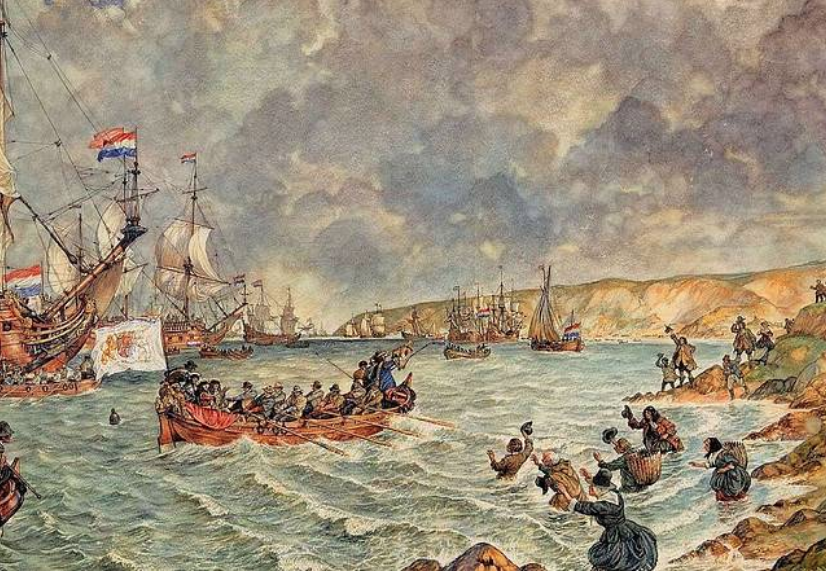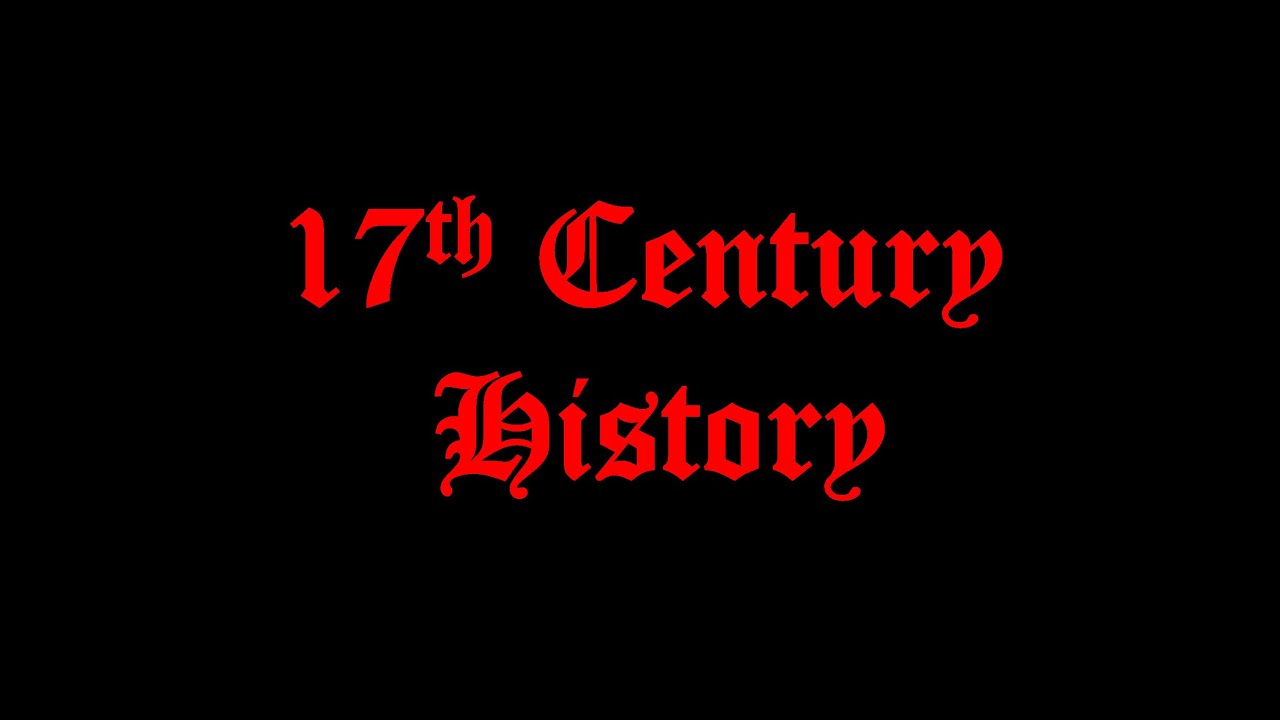Bill of Rights? Or Bill of Wrongs?

William and his Dutch Army land in Brixham. J. Hoynck van Papendrecht
Accepting that the English Bill of Rights is legitimate is, itself, accepting a contradictory rule of law to Magna Carta, and this idea is troubling for many (understandably). Magna Carta was expressing individual rights, the right of the people to judge all matters of justice: a sense that the people own the law. The Bill of Rights written in 1689, however, was a Parliamentary Constitution that would (if legitimate) deliver a different kind of law; one that elevates a centralised power of parliament to be able to deliver an approximated law for all. This is the attempted legitimisation of majority rule, party politics, legislation with the power to punish and summary trial.
In this distorted Parliamentary Constitution, it is claimed that the people ‘consent’ to being governed simply by the fact that politicians are elected; the idea there is a legitimacy to threaten punishment for non-compliance because you ‘have a say’ in who gets elected. Much of what a legislature writes in statute is merely policy which, in turn, is the legislator’s best guess at how to fix what he sees as society’s problems. It’s pure collectivism and is effectively bringing the defining of offences (justice) into the realm of political opinion. But justice is meant to be done through common right or reason or conscience: a sense of a higher right and wrong under Natural Law achieved through deliberation and discretion. With this new distorted rule of law, the people are expected to follow orders and comply under the threat of punishment dictated by a political class: adult suffrage is not Justice. Within this new constitutional ‘paradigm’ the people have lost ownership of the law.
Under the principles of the genuine Magna Carta constitution of 1215, the people owned the law through the Jury and the right for people to judge all justice themselves. Interesting it is then that the Bill of Rights confirmed the already unlawful state of affairs of imposing qualifications on the Jury: another weakening of the authentic Rule of Law.
Furthermore, the new distorted Parliamentary ‘Constitution’ denuded the King - which was a problem, because it is the king himself (as the most Senior Public Servant) who promises to govern according to the constitutional limitations and place himself and all public servants under the Natural Justice principles or the divine law.
It is interesting also that just before the Bill of Rights was written, the Coronation Oath text (the promise which is stated by the King at the coronation ceremony) was first written into statute (the form of law used by government itself for writing legislation). Why was that then? Isn’t the Coronation Oath something fundamentally higher than the government’s own legislation and is a component of the Rule of Law? Prior to that, the coronation oath text had existed in what is really customary common law and would have been regarded as something untouchable by the legislature. What is especially significant, and will have only be noticed by the most observant, is the fact that Government, in 1688, in the writing of the Coronation Oath Act, inserted an extra piece of text to facilitate their long-range plans. Previously, the King promised to govern ‘according to laws and customs’ because all statute was expected to be in alignment with the constitutional rule of law and therefore didn’t need to be stated. But on this occasion and for the first time, they inserted the text ‘according to the Statutes in Parlyament Agreed on’. Why would you need to insert that unless you were expecting the King (in this altered state of affairs) now to govern perhaps according to statutes agreed on that weren’t necessarily in accordance with the Constitutional Common Law? You see, when you put all these pieces together, the picture that emerges regarding the Glorious Revolution and the Bill of Rights is unsettling to say the least.
Whether you like the King or not, it is the individual in that role, (the head of state), who is tasked to make sure that his statutes are lawful. He holds that responsibility on his shoulders as the most senior public servant—that is the nature of Devine Kingship, it’s a tough thing, and, quite frankly, who would want that role!?
Within this relatively new (since 1689) illegitimate constitution of ‘Parliamentary sovereignty’, we have ample opportunity for fudging. The political class, goes into hyperdrive in obfuscation and panic when you begin to ask specifics. If the King does not have authority over Parliament anymore then why does he take a promise to govern? Does he really have prerogative powers that he can exercise - and if no more, on what authority were they removed? Why are public servants still taking an oath to the King, if he has no powers? If King John at Magna Carta promised in perpetuity to govern under divine laws, what would legitimately remove that arrangement to allow something else to be installed? What is the line of authority and the highest position of accountability? Nobody knows who to hold to account anymore unlike under the genuine Magna Carta Constitution in which you bring the Head of State to account in what is effectively a trial by his peers—the peers of the realm. Oh, we seem to have got rid of those as well under the excuse that they’re not elected. The problem here, is that we have simply forgotten how to hold a wayward King to account. You do it through the principle of a lawful trial, the same as with anyone else; because we’re all under the law equally and are treated the same. The King is meant to be held to account through due process of law, but not by altering the Constitution itself!
This entire subject of the Bill of Rights is riddled with illogicalities. The famous line from the Bill of Rights that begins ‘And I do declare that no foreign prince, person, prelate, state or potentate…’ all sounds very laudable but why did it install the Dutch foreign prince then? It is frankly almost laughable how ‘in one’s face’ the lies are. The contradictions, circular arguments and trickery that was being played in this whole episode of our history is almost indescribable.
This is only meant to be a short piece of writing, so I will resist the temptation on this occasion to go into the actual history leading up to the writing of the Bill of Rights: the discrediting of James II through a massive propaganda exercise, the actions of the unreputable ‘Immortal Seven’, the commercial and political interests of the powerful in the Netherlands and the formation of the Bank of England just following the Bill of Rights in 1694. If you are interested in knowing more about this breathtaking chapter of our history have a watch of a series of videos by Damien Lepts in which he and I get into the detail. The parallels with what is happening now is striking. Damien and I are half-way through the series currently but even in its currently incomplete state, this series exposes some astounding information which many are still ignoring. It can be found here:
https://www.youtube.com/watch?v=57689t-GLYc
It is the Bill of Rights of 1688 (a statute itself) that is the corrupt Parliament’s own preferred Constitution, and supporting and upholding it is effectively attempting to legitimise that principle that government itself can write its own limitations. If you’re genuinely interested in liberty, why would you support that?
WJK
